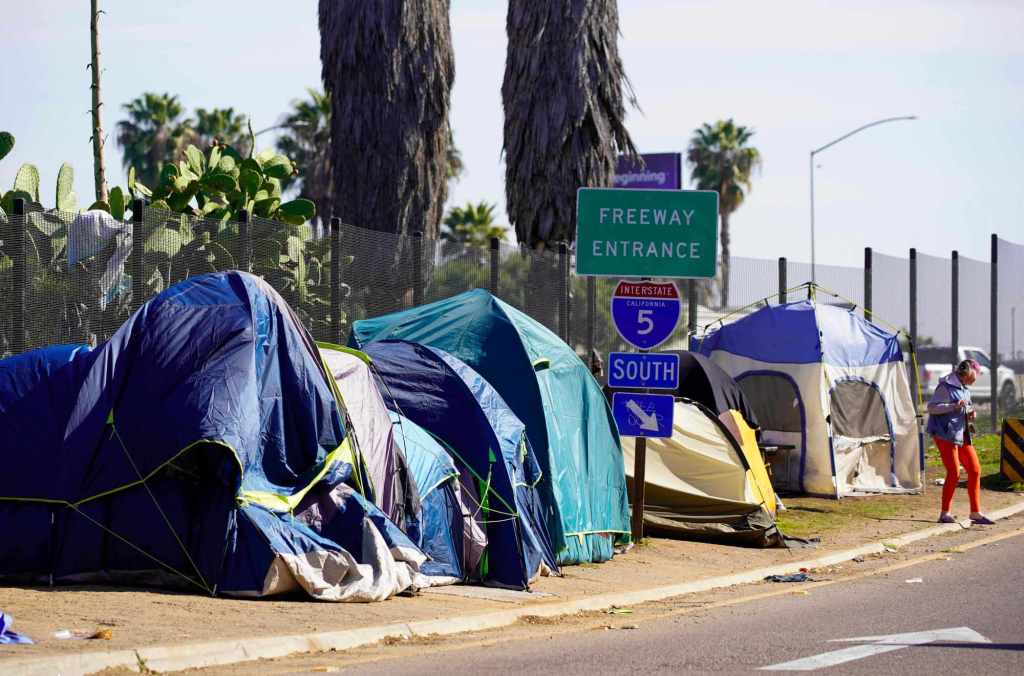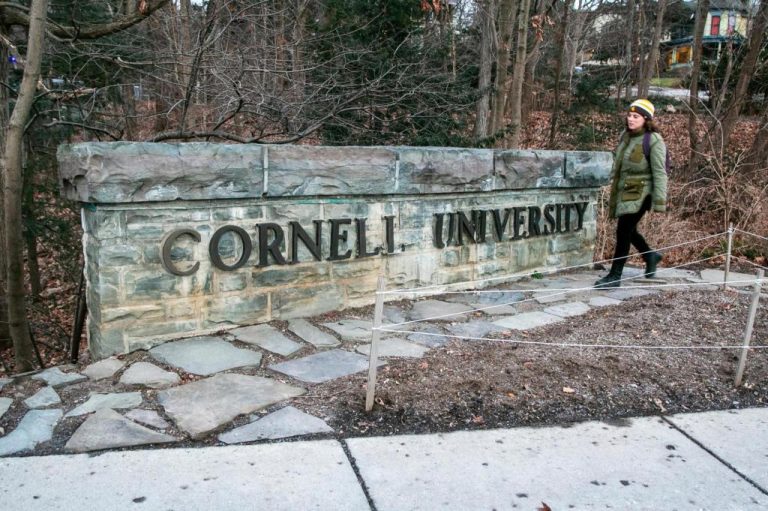

Tens of millions of dollars that local service organizations are counting on to fight homelessness remain frozen as the federal government changes the rules governing that money to restrict support for undocumented immigrants.
President Joe Biden’s administration previously announced more than $44 million for the San Diego region that was intended to support a range of programs. Those so-called continuum of care grants had been approved by Congress and in some cases may have reimbursed San Diego organizations for money already spent.
Yet local leaders say they’ve been unable to access those funds and instead are being asked to sign a new agreement that bars the “promotion of illegal immigration,” among other regulations, without an explanation as to how the revised policies should be carried out.
“It’s unclear,” said Tamera Kohler, CEO of the Regional Task Force on Homelessness. “We have these new requirements and we’re not 100% sure how we put those into action.”
Federal dollars are just one of several funding sources that San Diego County relies on amid a homelessness crisis that has steadily grown for years.
In the city of San Diego, continuum of care grants amount to only about 3% of all homelessness spending for the current fiscal year, according to the Office of the Independent Budget Analyst. But the federal government is a major player in the region, particularly when it comes to rental aid programs that help keep formerly homeless people housed, and the delay in distributing funds has alarmed members of San Diego’s Congressional delegation.
In a March 3 letter, U.S. Representatives Scott Peters and Sara Jacobs, among others, implored the head of the U.S. Department of Housing and Urban Development, or HUD, to hand out the promised money.
“Most of this funding is for existing projects, and without the grants, these projects will expire in Calendar Year 2025,” the members of Congress wrote. “These projects enable homeless services providers to help veterans, families with children, youth, seniors and vulnerable individuals.”
A spokesperson for Peters said late last week that their office had not yet received a response. HUD also did not respond to questions from The San Diego Union-Tribune about when the money might be processed and how officials would enforce the rules about immigration.
The county was promised a total of 61 grants, according to records shared with the Union-Tribune by the regional task force. (The list appears to have been taken off HUD’s website, and clicking on a link from the Biden administration’s original press release now triggers a “page not found” error message.)
More than $615,000, for example, was pledged to the local Salvation Army. Spokesperson Jake Minger said those funds are needed to quickly get hundreds of families into stable housing.
Normally the money would have been accessible in February, said Kohler, the head of the task force. Instead, service organizations have been given new contracts to sign — yet even those seem to be a moving target.
One version from mid-March would have prohibited spending money on “programs promoting diversity, equity and inclusion that violate any applicable Federal anti-discrimination laws.” However, newer language reviewed by the Union-Tribune traded that anti-DEI section for a more general prohibition against “programs that violate any applicable Federal anti-discrimination laws.”
Regardless, there has consistently been language targeting undocumented immigrants.
Immigration is not a main driver of local homelessness, and new arrivals to the United States have previously been able to utilize a separate shelter system for migrants. Yet that network is rapidly contracting under President Donald Trump and some undocumented residents do end up staying in traditional homeless shelters.
The newest version of the grant agreement says local governments may not use federal funding “in a manner that by design or effect facilitates the subsidization or promotion of illegal immigration.”
It’s not clear how that might be enforced. Local shelters generally do not ask participants about citizenship to avoid violating laws prohibiting housing discrimination. HUD leaders previously decreed that services “necessary for the protection of life or safety,” such as street outreach or shelter beds, should be accessible to everyone regardless of immigration status.
Scott Marshall, a spokesperson for the San Diego Housing Commission, said the agency was still trying to figure out how the new language might apply to shelters.
Other sections of the agreement include rules against the promotion of “gender ideology,” a reference to policies that support transgender residents, and a paragraph noting that HUD won’t force homelessness programs “to use a housing-first program model.”
The latter line signals that Trump may again try to roll back a federal policy that has long guided the nation’s response to homelessness.
Housing first prioritizes getting people under a roof before other issues, such as substance use disorders, are addressed. While a large body of research has found the approach to be effective for a majority of participants, many conservative leaders believe the emphasis on housing has come at the expense of expanding other key services, such as addiction treatment.
Eliminating Housing First at the federal level would have less of an effect on San Diego since California still uses the model to dole out state funds.
California’s two senators, Alex Padilla and Adam Schiff, recently joined other colleagues to say that some provisions in the revised agreement raised “serious legal and constitutional concerns.”
“By tying critical funding to unrelated and discriminatory policy requirements,” the senators wrote in a March 19 letter, “HUD risks jeopardizing lifesaving services.”






